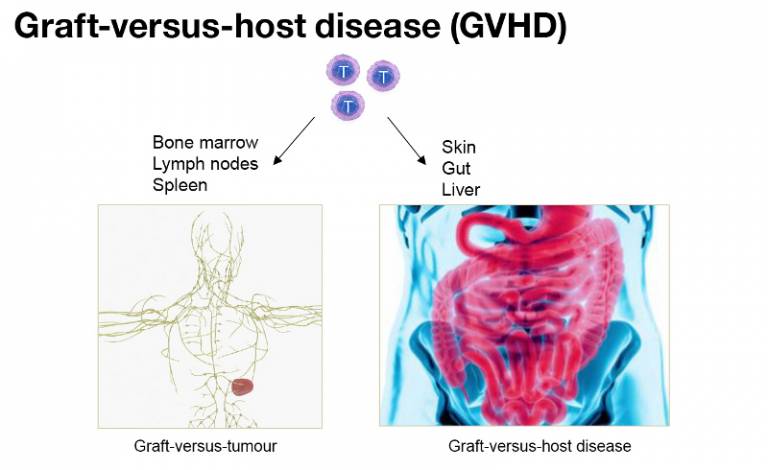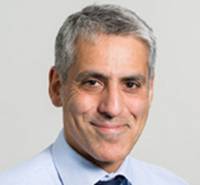Group Leader: Dr Ronjon Chakraverty
Introduction
The Transplantation Immunology Group is based at the Hampstead Campus and forms part of a large Immunotherapy Programme at UCL. Our research involves both pre-clinical, translational and phase I/II projects that aim to develop innovative strategies to improve the anti-tumour effects of blood and bone marrow transplantation. We work closely with the groups of Professor Hans Stauss/Dr. Emma Morris (Tumour Immunology, Cellular and Gene Therapy), and Dr. Clare Bennett (Dendritic Cell Immunotherapy), with a number of fellows or PhD students working on joint projects.
Research
Following blood or bone marrow transplantation, donor T cells that have been infused as part of the graft or given at a later time point, become activated in response to antigenic differences between the donor and the recipient. This effect can be co-opted to generate anti-tumour activity, an effect termed the ‘graft-versus-tumour’ (GVT) response. Alternatively, donor T cells may react against normal tissues, leading to graft-versus-host disease (GVHD). See figure below:

These outcomes depend upon how donor T cells recognize antigen and this, in turn is influenced by nature of the cells presenting antigen. We are interested in how distinct non-haematopoietic and haematopoietic cell populations in the recipient influence the development of donor T cell immunity after transplantation. This research offers the opportunity to develop new approaches to manipulating antigen presentation for therapeutic benefit e.g. following vaccination.
Ultimately, durable anti-tumour immunity requires that T cells with anti-tumour reactivity engraft and then persist long-term in the recipient. By exploring clinically relevant models, we are examining the mechanisms that influence the long-term survival of anti-tumour T cells such that they can provide long-term immune surveillance. An improved understanding of the pathways that regulate this property of ‘memory’ is helping us to engineer T cells that can maintain their functions over long periods.
Current Research Projects
Pre-clinical:
- The role of antigen presentation by the innate immune system in GVHD
- The influence of co-inhibitory and co-stimulatory signalling in GVHD and GVL
- The effect of antigen presentation by non-haematopoietic cells upon anti-tumour immunity
- Tolerance pathways in dendritic cells
- In vivo selection of anti-tumour T cells
- Tumour targeting of anti-tumour cells
- Memory programming of therapeutic T cells
Translational:
- Selection of human memory T cells for clinical application
Phase I/II clinical studies:
- ProT4; multi-centre randomised phase II study to evaluate the efficacy of prophylactic transfer of CD4 lymphocytes after T-cell depleted reduced intensity HLA-identical sibling transplantation for indolent non-Hodgkin’s lymphoma and CLL
 Close
Close


